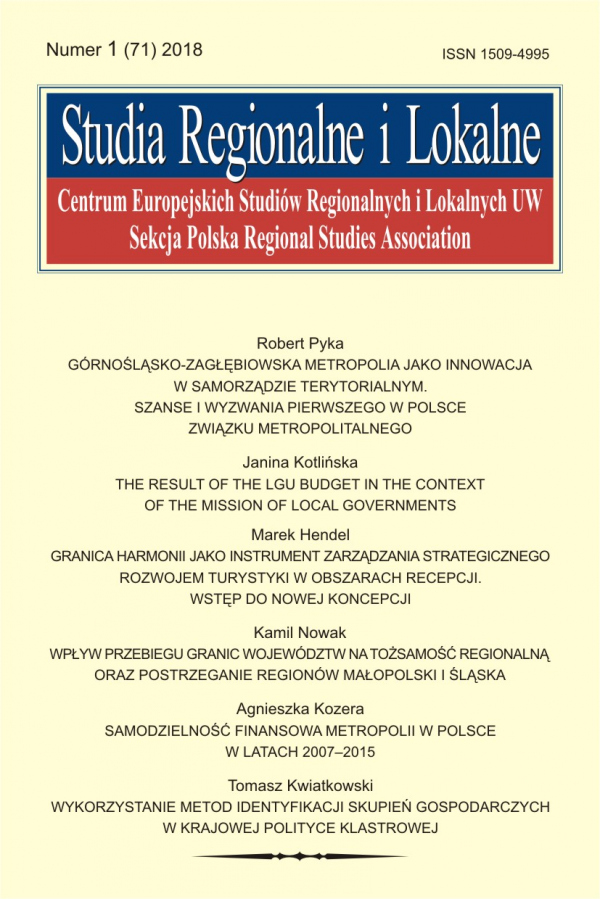Issue:
1(71)/2018
Janina Kotlińska
The result of the LGU budget in the context of the mission of local governments
DOI: 10.7366/1509499517102
The result of the LGU budget in the context of the mission of local governments
Since the very beginning of their establishment, municipalities, counties and regions (voivodeships) have been struggling with financial problems. Unfortunately, these problems affect the performance of the tasks assigned to these administrative units, including the standard of provided services and investment activities. Although extensive, the scale of the unsatisfied needs in LGUs varies between individual units, including municipalities. Thus, the positive financial results (the balance at the closure of the fiscal year) achieved by local government units in Poland in the recent years, as well as their future, offer an intriguing topic of research. The purpose of this paper is to identify the causes that: 1) underpin the re-evaluation of the LGU goals (from the implementation of the local government mission to achieving a budget surplus), and 2) allow the positive result of the LGU budget to finance goals other than investment-related ones. In order to achieve this, the study covers and illustrates, using the empirical data from the years 2007-2016, the types of possible LGU budget results, LGU activities that could contribute to the closure to LGU budgets with a positive result, directions of using budget surpluses and the so-called uncommitted funds, as well as local governments’ debt in terms of the intergenerational solidarity concept of its repayment and its perceived optimal structure.
Affiliation:
Janina Kotlińska: The John Paul II Catholic University of Lublin, Institute of Economics and Management, Department of Public Finances, Al. Racławickie 14, 20-950 Lublin;
jankakotlinska@kul.lublin.pl 


